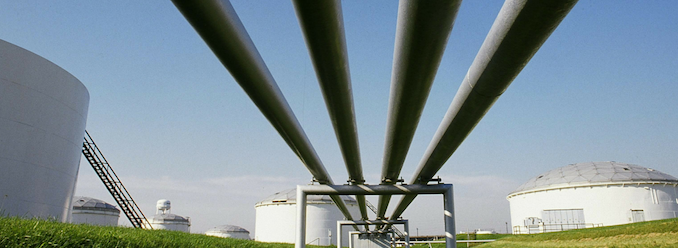Magellan's Permian-Houston Crude Pipelines Volumes Drop
(Reuters) — Magellan Midstream Partners LP on Thursday reported declining volumes in the last quarter on the Longhorn and Bridgetex pipelines that carry crude from the Permian Basin to Houston as shippers likely moved barrels to the international market, while refined product volumes rose on pandemic demand recovery.
Shippers on the long-haul crude oil lines took volumes elsewhere, likely to be exported from Corpus Christi, Texas, — the top port for oil exports — and to the broader international market, executives said on an investor call, as Europe's demand for barrels increased following Russia's invasion of Ukraine.
The port of Corpus Christi is the largest U.S. crude export port.
"That's an example of potential decisions that our shippers could be making," said Magellan CEO Aaron Milford, adding that he expected the moves to be temporary. "We don't expect that to continue forever, but there are moments where they may be making those decisions for sure."
Shippers that did not fulfill their commitments would still have pay what are known as deficiency payments, which are penalties for not shipping oil, Milford said.
Volumes on the 450-mile (724-km) Magellan's wholly-owned Longhorn crude oil pipeline from West Texas to Houston averaged about 200,000 barrels per day in the three months ended June 30 compared with 260,000 bpd in the same period last year.
The Bridgetex crude pipeline from the Permian to Magellan's East Houston terminal, which is a joint venture, dropped to 215,000 bpd from nearly 315,000 bpd in the year ago period.
The Tulsa, Oklahoma-based company said in December that it expected relatively flat volumes for a few years on the Longhorn and the Bridgetex crude pipelines.
On the Saddlehorn pipeline in Colorado, another joint venture, volumes were about flat, while levels on the company's south Texas systems increased.
Meanwhile, volumes on the largest common carrier refined products pipeline system in the United States increased 3% partly due to pandemic demand recovery, Magellan said.
Revenue from oil storage decline as a steeply backwardated market made holding barrels less attractive and following contract expirations, while operating expenses increased $28 million.
Magellan is a significant owner of tanks at the Cushing, Oklahoma, storage hub, where levels have held closely above the operational lows of 20 million barrels in recent weeks.
Related News
Related News

- Enbridge Plans 86-Mile Pipeline Expansion, Bringing 850 Workers to Northern B.C.
- Intensity, Rainbow Energy to Build 344-Mile Gas Pipeline Across North Dakota
- U.S. Moves to Block Enterprise Products’ Exports to China Over Security Risk
- 208-Mile Mississippi-to-Alabama Gas Pipeline Moves Into FERC Review
- Court Ruling Allows MVP’s $500 Million Southgate Pipeline Extension to Proceed
- U.S. Pipeline Expansion to Add 99 Bcf/d, Mostly for LNG Export, Report Finds
- A Systematic Approach To Ensuring Pipeline Integrity
- 275-Mile Texas-to-Oklahoma Gas Pipeline Enters Open Season
- LNG Canada Start-Up Fails to Lift Gas Prices Amid Supply Glut
- Kinder Morgan Gas Volumes Climb as Power, LNG Demand Boost Pipeline Business





Comments